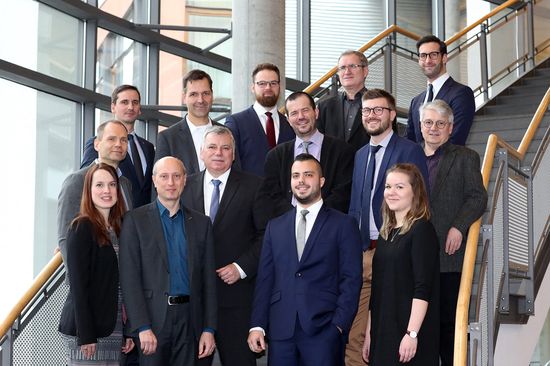Blockchain for freight documents

Modern merchant shipping uses a large number of different documents in paper form. A joint project led by the Centre for Law of Information Society (ZRI) at the University of Oldenburg is now aiming to replace cargo-specific transport documents with their electronic equivalents. The German Federal Ministry for Economic Affairs and Energy (BMWi) has been funding the project entitled “Handelbarkeit physikalischer Güter durch digitale Token in Konsortialnetzwerken” (HAPTIK) (Tradability of physical goods by digital tokens in consortium networks) with 1.4 million euros over three years since the beginning of January 2019.
“The most important document in freight transport is still the so-called bill of lading”, reports Prof. Dr. Jürgen Taeger, Director of ZRI and head of the joint project. This paper serves several functions: It proves that a piece of freight has been taken over by the carrier and it documents the obligation to deliver it to the recipient at a certain place. “To date, the bill of lading in its paper form is passed through the hands of all parties involved so that they are able to check the documents,” Taeger said. He added that the time and costs involved were immense.
He and his colleagues now want to investigate how digital bills of lading could look like if they were to be equivalent to the previous freight documents. The Oldenburg-based researchers want to solve this task using blockchain technology, which creates databases using a cryptographic process. The stored content cannot be manipulated, even when different users access it. “At the click of a mouse button, digital bills of lading can be created, transferred and checked for accuracy within seconds,” says David Saive, legal expert for blockchain technology and a member of Taeger's team. Document transfer is considerably accelerated, which could lead to enormous savings in the logistics industry.
The project is made possible by a change in the law that essentially allows for the digitalisation of freight documents. With this regulation, the electronic bill of lading will be legally equal to the paper form - if it is possible to electronically reproduce the functional equivalence of the bill of lading. Among the project partners are Prof. Dr. Jorge Marx Gómez, business data processing specialist at the University of Oldenburg, the MCN member OFFIS – Institute for Information Technology with the department of transport headed by Prof. Dr. Axel Hahn as well as the logistics company Schenker AG.
Project updates